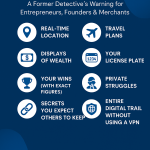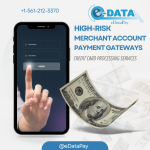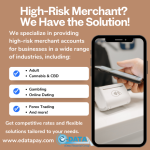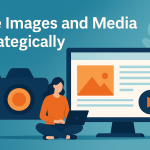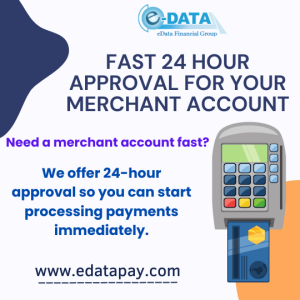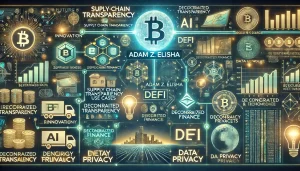Top NFT Marketplaces for Creators to Sell Non-Fungible Tokens
Advertiser Disclosure: Our unbiased reviews and content are supported in part by affiliate partnerships, and we adhere to strict guidelines to preserve editorial integrity. We may from time to time earn commission when you visit the suggested solution’s and make a purchase. You will never pay more due to this.
NFTs are non-fungible tokens. They are unique items that you can’t replace with something else. For example, a one-of-a-kind trading card is an NFT – you can’t just replace it with any other card. If you trade your card for some other card, you have something different. These differ from fungible items, which are often the same as each other. If you trade one bitcoin for another, you end up in the same position as where you started, for instance. On the other hand, if you swap a near-worthless mass-produced late 80s baseball card for a 1909 American Tobacco Company T206 Honus Wagner card (valued at over $1 million), you’ve done very well for yourself.
Nowadays, most NFTs tend to be digital. This makes it particularly easy for creators to give their supporters something rare and unique. Some NFTs, for example, are digital artworks, and people are now collecting these digital artworks, just like collectors have collected physical paintings for years. And some of these NFTs have gone for extraordinary prices. One NFT artwork by a digital artist called Beeple sold for $69 million at Christie’s.
A more down-to-earth version of a modern digital NFT is CryptoKitties. They are an Ethereum blockchain game where users can buy, sell and breed digital “cats.” Every “cat” is unique (just like your real-life pet).
In some ways, NFTs are similar to Bitcoins and other cryptocurrencies, except, of course, they are non-fungible and non-divisible. The first NFTs were part of the Ethereum blockchain, which stores extra electronic information to distinguish their uniqueness. Other blockchains now also facilitate NTFs. Because of the differing blockchain technology behind particular NFTs, not all NFT marketplaces buy and sell all types of NFT. Creators will often select an NFT marketplace based on whether that marketplace supports a specific NFC token standard. Ethereum has released two standards now: ERC-721 and ERC-1155. Competitor, Binance, has since released standards BEP-721 and BEP-1155. The two “1155” standards differ from the original “721” standards because they allow multiple NFTs to be bunched and transacted together.
Most NFT platforms require buyers to have a digital wallet and use cryptocurrencies to pay for their purchases.

Top NFT Marketplaces for Creators to Sell NFT:
1. OpenSea

OpenSea boldly describes itself as being the largest NFT marketplace. It offers a wide range of non-fungible tokens, including art, censorship-resistant domain names, virtual worlds, trading cards, sports, and collectibles. It includes ERC721 and ERC1155 assets. You can buy, sell, and discover exclusive digital assets like Axies, ENS names, CryptoKitties, Decentraland, and more. They feature over 700 different projects, including trading card games, collectible games to digital art projects, and name systems like ENS (Ethereum Name Service).
Creators can create their own items on the blockchain using OpenSea’s item minting tool. You can use it to make a collection and NFTs for free, without the need for a single line of code. If you’re developing your own smart contract for a game, digital collectible, or some other project with unique digital items on the blockchain, you can easily get added to OpenSea.
If you’re selling items on OpenSea, you can sell an item for a fixed price, create a declining price listing, or make an auction listing.

OpenSea
The world’s largest digital marketplace for crypto collectibles and non-fungible tokens (NFTs), including ERC721 and ERC1155 assets. Buy, sell, and discover exclusive digital assets like Axies, ENS names, CryptoKitties, Decentraland, and more.
2. Rarible

Rarible is a community-owned NFT marketplace, with its “owners” holding the ERC-20 RARI token. Rarible awards the RARI token to active users on the platform, who buy or sell on the NFT marketplace. It distributes 75,000 RARI every week.
The platform places a particular focus on art assets. Creators can use Rarible to “mint” new NFTs to sell their creations, whether they be books, music albums, digital art, or movies. The creator can even show a sneak peek of their creation to everybody who comes to Rarible but limit the full project to the purchaser.
Rarible buys and sells NFTs in categories like art, photography, games, metaverses, music, domains, memes, and more.
3. SuperRare

SuperRare has a strong focus on being a marketplace for people to buy and sell unique, single-edition digital artworks. Each artwork is authentically created by an artist in the network and tokenized as a crypto-collectible digital item that you can own and trade. They describe themselves as being like Instagram meets Christie’s, offering a new way to interact with art, culture, and collecting on the internet.
Each artwork on SuperRare is a digital collectible– a digital object secured by cryptography and tracked on the blockchain. SuperRare has built a social network on top of the marketplace. As digital collectibles have a transparent record of ownership, they’re perfect for a social environment.
All transactions are made using ether, the native cryptocurrency to the Ethereum network.
At the moment, SuperRare works with a small number of hand-picked artists; however, you can use a form to submit your artist profile to get on their radar for their upcoming full launch.
4. Foundation

Foundation is a specialist platform designed to bring digital creators, crypto natives, and collectors together to move culture forward. It calls itself the new creative economy. Its primary focus is on digital art.
In the first blog post on their website in August 2020, they announced an open call for creators to experiment with crypto and play with the concept of value. They invited creators to “hack, subvert, and manipulate the value of creative work.”
Whenever an NFT trades on Foundation, the artist makes 10% on that secondary transaction, i.e., an artist receives 10% of the sales value any time a collector re-sells their work to someone else for a higher price.
5. AtomicMarket

AtomicMarket is a shared liquidity NFT market smart contract that is used by multiple websites. Shared liquidity means that everything listed on one market also shows on all other markets.
It is a marketplace for Atomic Assets, a standard for non-fungible tokens on the eosio blockchain technology. Anyone can utilize the Atomic Asset standard to tokenize and create digital assets and buy, sell and auction assets using the Atomic Assets marketplace.
You can list your own NFTs for sale on the AtomicMarket, and you can browse existing listings. NFTs of well-known collections get a verification checkmark, which makes it easier to spot the real NFTs. Malicious collections are blacklisted.
6. Myth Market

Myth Market is a series of convenient online marketplaces supporting various digital trading card brands. At the moment, its featured markets are GPK.Market (where you can buy digital Garbage Pail Kids cards), GoPepe.Market (for GoPepe trading cards), Heroes.Market (for Blockchain Heroes trading cards), KOGS.Market (for KOGS trading cards), and Shatner.Market (for William Shatner memorabilia.)
7. BakerySwap

BakerySwap is an automated market maker (AMM) and decentralized exchange (DEX) on Binance Smart Chain (BSC). It uses a native BakerySwap token (BAKE). BakerySwap is a multi-functional crypto hub offering a range of decentralized finance (DeFi) services, as well as a crypto launchpad and non-fungible token (NFT) supermarket.
Its NFT supermarket hosts digital art, meme competitions, and NFT in games that users can pay for in BAKE tokens. You can use NFTs in ‘combo meals’ to earn bonus BAKE tokens. Also, minting and selling your own artwork is a simple, straightforward process.
8. KnownOrigin

KnownOrigin is a market where you can discover and collect rare digital artwork. Every digital artwork on KnownOrigin is authentic and truly unique. Creators can use the platform to showcase and sell their work to collectors who care about authenticity. It is secured by the Ethereum blockchain.
Creators can submit digital artwork as a jpg or Gif to the KnownOrigin gallery, with all files on IPFS.
9. Enjin Marketplace

Enjin Marketplace is a mechanism by which you can explore and trade blockchain assets. It is the official marketplace for Enjin based NFTs. To date, it has enabled $43.8 million of Enjin Coin to be spent on digital assets, involving 2.1 billion NFTs. 832.7K items have been traded. You can use the Enjin Wallet to easily list and purchase gaming items and collectibles.
The Projects page features Enjin-powered blockchain projects, from game item collections like the Multiverse and games like Age of Rust and The Six Dragons to gamified reward programs such as Microsoft’s Azure Heroes, community-created collectibles, and NFTs by companies like Binance and Swissborg.
10. Portion

Portion is an online marketplace connecting artists and collectors through Blockchain technology to easily sell, invest and own art and collectibles with complete transparency. It includes the Artist Community, a global network of decentralized artists and creators.
Portion allows anyone to be a collector. You can manage your physical and digital collection in one place, making it easy to exchange crypto for art and collectibles.
Portion Tokens are ERC-20 assets on the Ethereum Blockchain and exist to decentrally govern and vote on the platform’s future. New tokens are released for liquidity mining, artist grants, partnerships, and future team members. New Portion Tokens are also distributed when artists create new NFTs, currently being worth 500 PRT each.
11. Async Art

Async Art is an art movement built on the blockchain. You can create, collect, and trade programmable art. You can buy both “Masters” and “Layers.” A Master is a 1/1 edition art piece, while Layers are the individual components that make up the Master image. Layers are endowed with special abilities decided by the artist. When you change something on a Layer, the Master image will reflect this regardless of who owns it. Artists select the parameters of their art and grant exclusive control over any aspect to individual collectors. For example, they might let someone change the state of the background, the position of a character, or the color of the sky.
Since February 2020, there has already been over $6M in bid volume on the platform and over $1.5M in artist sales.
Frequently Asked Questions
What is an NFT?
An NFT is a non-fungible token. It is a unique item that you cannot replace with something else. An example of an NFT is a one-of-a-kind trading card, such as a digital artwork, that you simply cannot replace with any other artwork. Today, the majority of NFTs are digital which makes it very easy for creators to give their supporters something unique and rare. While they are similar to Bitcoins and other cryptocurrencies, they are non-fungible and non-divisible.


